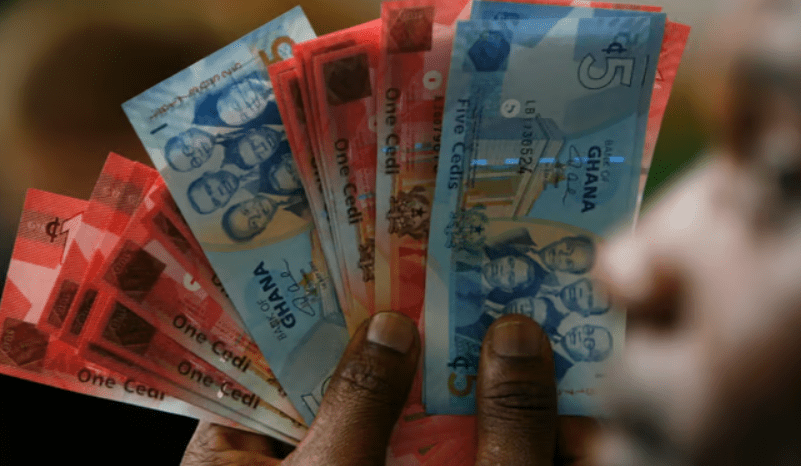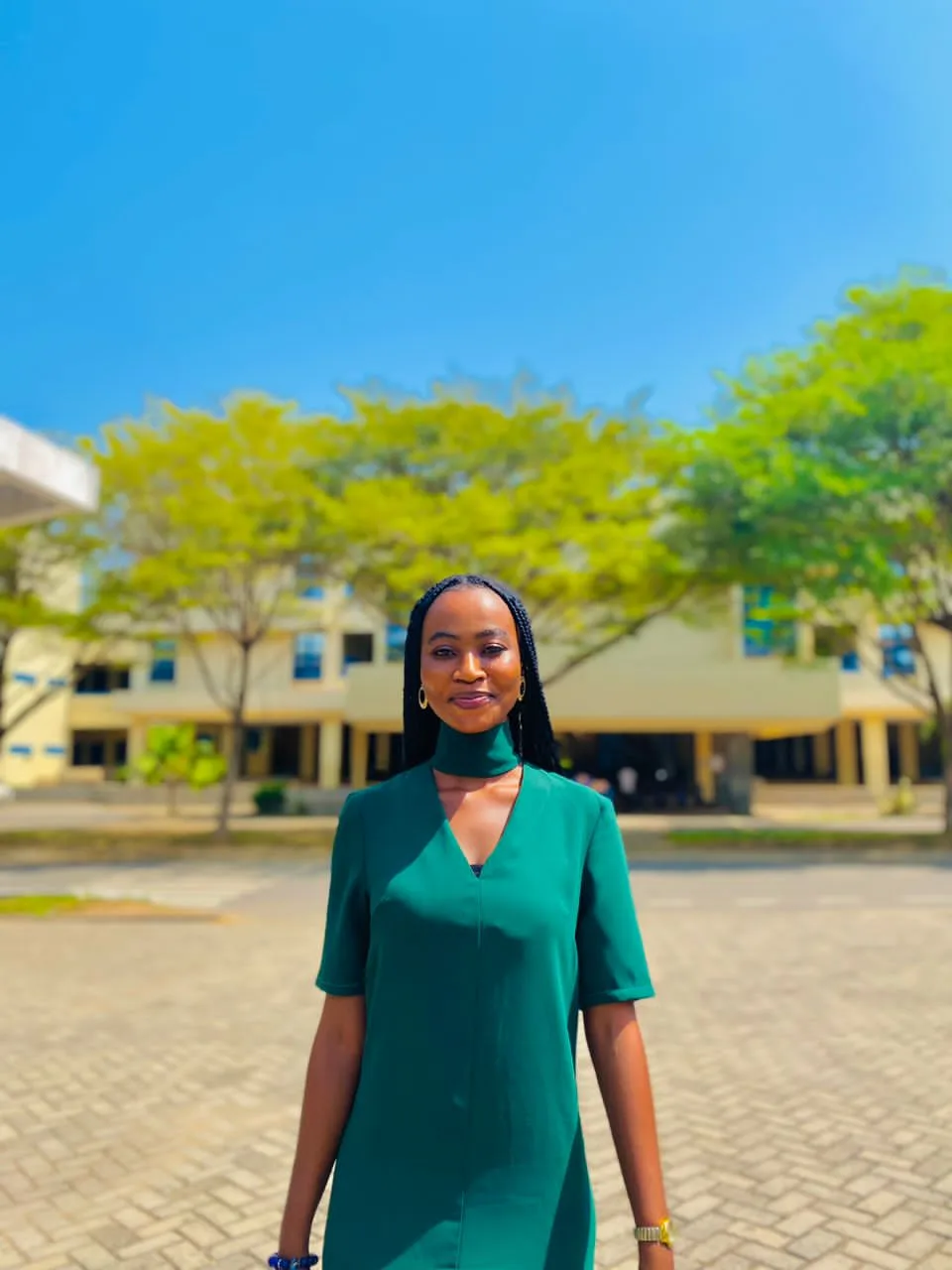
The National Democratic Congress (NDC) leadership has introduced unique donation cards known as Good Governance Cards in an effort to gather money for the party in a sustainable manner.
On Tuesday, 15 August 2023, the party disclosed this new system is an overhaul of the existing one, with two additional cards being introduced to broaden the net and rope in more donations in a letter issued to all Regional Chairmen and signed by its Director of Administration, Emmanuel Zumakpeh.
They are the Loyalty and Standard Cards.
According to the party’s leadership, the cards have the following features: they are self-registering with mobile money and bank payment possibilities, and they are managed by a digital platform manager.
In addition, a softcopy of the card is issued immediately upon payment completion, while the hardcopy is printed and mailed to the applicant.
The cards, according to the party, are classified as “Prestige, Platinum, Gold, Silver Bronze, Standard, and Loyalty.”
“Owners of existing cards will be rolled over to the new ones with the appropriate modifications,” according to the letter.
Since the 1992 elections, several conferences have been convened to discuss political party financing.
According to a CDD study, the main problems have been how to develop viable parties in order to sustain multiparty democracy and if public support is desirable.
In 2003, in an address to leaders of registered political parties and other stakeholders, the President of the Republic at the time, Mr. John Agyekum Kufuor, endorsed the widely held view that political parties should be partially, if not entirely, funded through budgetary allocations.
However, he quickly added that the true difficulty remained “when, how, and how much.”
Along with the unanswered issues of when, how, and how much, there are considerable concerns about public support for state sponsorship of political parties.
Ghana’s political class, in general, and party leaders in particular, appear to accept the need for public assistance.
According to the CDD report, presuming that the ordinary Ghanaian feels it is the responsibility of the state to fund political parties is false.
Indeed, some have argued that the time is not right for state funding, given the country’s chronic huge gaps in financing key social sectors such as education, health, and utilities, not to mention the country’s current levels of perception of corruption in general, and within political parties in particular.
What are the main reasons for and against public funding of political parties in a democratic society?
Three basic reasons have been advanced by supporters of public spending.They are as follows:
Inequality is reduced because public funding creates a more level “playing field” for the parties. The benefits of incumbency and stronger financial resources for the incumbent party are diminished; all candidates and parties would thus have the political space to concentrate and give their perspectives on how to solve the country’s challenges. • Corruption is reduced – Partly due to accounting and reporting requirements, public funding reduces the temptation for political parties to accept illegal contributions, accept donations in exchange for favours, use money for activities such as vote-buying, use state resources in conducting election campaigns, or engage in any number of corrupt political practises.
Reduced influence of special interests – Public funding decreases the incentive for political parties to take “interested money,” which causes a party to be disproportionately affected by a small group of people. The interests of the people are better represented when special interests have less power in a political system.
Opponents of public sponsorship of political parties, on the other hand, claim as follows:
Inappropriate use of public funds – It is inappropriate for the government to spend huge quantities of money on political parties when there are pressing social needs that go unmet, such as poverty, health care, nutrition, and basic education. • Some Parties may get complacent and atrophy – Once political parties acquire public financing, they will stop actively seeking new members and finances from the voting public. The parties will no longer feel compelled to carry out their activities because the state would comfortably support them. The parties’ efficacy and influence will dwindle as a result of their complacency.
Reduce the power of money by restricting money flow – Political parties already have a lot of money; they just need to learn how to handle it better and spend it wisely. They have a fiduciary duty to be more thrifty with public funds. The best method to prevent corruption in politics would be to limit the amount of money going into the political system in general and the election system in particular.
Also, former President John Mahama addressed the issue during a lecture in early 2023, as shown below:
Launch of the JM 2024 fundraising platform and public lecture on political financing in Ghana. HE John Dramani Mahama’s Keynote Address on Political Financing The Ghana We Want: The Case for More Transparent and Broad-Based Citizen Participation campaign.
Wednesday, March 22, 2023, University of Professional Studies, Accra
Mr. Chairman, Hon. Members of Parliament, Diplomatic Community Members, Officials of various Political Parties, including my own NDC Comrades, Representatives of Civil Society Organisations, Distinguished Invited Guests, Ladies and Gentlemen,
Thank you for coming to this important national gathering to debate political campaign financing. This is a topic that, I believe, is extremely close to many Ghanaians’ hearts and minds. Let me also thank my colleagues on the John Mahama 2024 team for taking the initiative to re-open the discussion of financing political campaigns, which has been on the table since the beginning of our political adventure.
I also want to thank the Civil Society Organisations, Research Institutions, and individuals who helped us host tonight’s event. This included the Friedrich-Ebert-Stiftung Ghana, which funded for the use of the venue, as well as CSOs such as IMANI, CDD, IDEG, GII, COPEC, and the Political Science Department of the University of Ghana, Legon, which presented expert opinions on the subject.
Indeed, it is my hope that the dialogue will continue from here, and that reform efforts will begin to move our democracy towards the Ghana that we all desire.
In this lecture, I will argue for more transparent and broad-based citizen participation in political campaign financing. In addition, I plan to create and conduct a clever digital retail fundraising My campaign platform for 2024. Ghana now has enough internet capacity to power digitalised applications thanks to the highly robust fixed and wireless broadband that my administration constructed across the country. My expectation is that by utilising this unique smart kernel, political parties will be able to spread and nourish various trees with numerous branches for resource mobilisation.
Surely, and hopefully, such an intervention will remove the reliance on a few individuals who finance political campaigns in exchange for favours, which is a formula for corruption in any democracy. And, if I may add, CSOs and other public-spirited organisations can use this method of broad-based resource mobilisation to fund their activities, thereby limiting the constraints that might sometimes follow donor-funded research and campaigning in poor countries like Ghana.
Ladies and gentlemen, the event’s theme says it all. In Ghana, we must overhaul the financial structure for political party activities. While this topic may be as old as the Fourth Republic and has been raised by many in the past, it is still pertinent today. It is a continuing aspect of our democratic path in order to avoid reform
As a prominent player in Ghana’s political sphere since 1996, I can witness to the need of ethical campaign finance. While some political actors have argued for state sponsorship of political parties, the truth is that Ghana is currently bankrupt. According to the Minister of Finance, Ghana is working hard to acquire an IMF plan before the economy collapses completely by the end of March 2023. As a result, Ghana cannot now absorb additional expenditure streams.
To be honest, the state already helps political parties in a variety of ways. For example, several political parties have had their filing fees refunded to them after elections because they received the required number of votes. This indicates that the state pays the filing fees.
Moreover, in the past, the government acquired and distributed vehicles to political parties in proportion to their vote share in the most recent election through the Electoral Commission. With the possibility of future state financing ruled out – at least for the time being – I intend to re-open the debate on political party finance in Ghana, focusing on the necessary changes and regulations to promote transparent and broad-based financial choices for parties.
My brothers and sisters, in particular, want the national debate to centre on the following major issues, among others: 1. How are our political campaigns in Ghana funded?
How effective is the European Commission’s regulatory oversight?
Are our political parties effectively serving as vehicles for national development?
Is it possible for the government to support political parties? 5. Should the EC reassign its regulatory role for political money to a separate Statutory body?
Are citizens supportive of government funding for political parties?
Should the Political Parties Act (Act 574) be amended? If yes, what are the specifics?
How can political parties promote open and diverse funding for their activities? 9. How can recent technical improvements help with this?
Since 1992, Ghana has held eight (8) presidential and parliamentary elections. Three of these elections resulted in the peaceful transfer of power from the incumbent party to the opposition party
the opposition; namely, the 2000, 2008 and 2016 elections.
On the structure of our parties, the NDC and NPP, have maintained quite a good network across the country and this has helped to generate strong interest in party politics among Ghanaians.
As a result, voter turnout in our presidential and parliamentary elections has been on average high. For example, in 2004, 2008, 2012, 2016, and 2020, the turnout was 85%, 73%, 80%, 69%, and 79%, respectively. These are relatively high by peer standards, and Ghana’s democratic credentials have been lauded as among the best in the subregion. This evaluation, however, ignores other areas of our democracy that have not progressed and, in fact, are having a negative impact on the progress accomplished thus far. This is due to the lack of transparency and depth of regulatory monitoring in Ghana regarding campaign financing.
Traditionally, a political party’s resources were derived from the regular elections
According to the Ghana Centre for Democracy and Development (CDD), in recent years, some political campaign money has come from illicit operations like as illegal miners, oil bunkering businesspeople, fraudulent firms, procurement practises in contract awarding, and so on.
According to their findings, there appears to be a substantial link between political campaign money and organised crime in Ghana. This is alarming! Worrying because it has the potential to give criminals control of our governance system. If this occurs, our democracy will eventually devolve into a plutocracy – a country dominated indirectly by a few affluent individuals. Ladies and gentlemen, functioning political parties are critical to promoting democracy and long-term development in any country. They play critical roles in the creation of government, nurture leaders at all levels, and function as a watch dog for incumbent administrations. This is why, given that political parties are also state political institutions, we cannot continue to neglect their healthy growth.
Some have suggested that the only funding that can be supplied to parties and cannot be hidden in secrecy is public funding. This refers to the government providing financial resources or other forms of indirect help to political parties.
As previously stated, in the absence of such assistance, and given the high cost of political operations, wealthy party financiers may assume the role of political godfathers, determining electoral outcomes and everything that follows.
Ghana is now bankrupt. We have been assigned junk status by international credit rating organisations. As a result, additional state funding is unlikely to be a viable alternative. Even if such becomes a possibility in the future, I urge that we establish an explicit public funding of political parties Bill that is bipartisan and inclusive. I further urge that, if public support for political parties is increased in the near future, an impartial and credible organisation be chosen to handle the state resources supplied to political parties. In this context, a sharing formula and certain disclosure requirements for beneficiary parties could be devised to ensure fairness. Auditing and publishing of party accounts must be supplemented.
Ladies and gentlemen, while I do not advocate for extra state funding at this time of national economic crisis, I recognise that much more has to be learned about how political parties are funded, as this may have repercussions for our development outcomes. We need to understand how politicians fund their campaigns for office, as well as who they owe money to and are supposed to return.
To promote good governance and democratic practises in Ghana, it is critical that we engage in persistent conversations and reach consensus on supporting political parties within the context of public policy.
In terms of needed reforms, Chapter 7 (7) of Ghana’s 1992 Constitution (Article 55) and the Political Parties Act (Act 574) that govern campaign financing may be a good place to start. While the Constitution allows institutions and foreign agencies to provide non-financial support to political parties, the Political Parties Act (Act 574) states that only a Ghanaian citizen may make a contribution or donation to a political party registered in Ghana. The Act states that “a non-citizen shall not directly or indirectly make a contribution, donation, or loan, whether in cash or in kind, to funds held by or for the benefit of a political party, and no political party or person acting for or on behalf of a political party shall demand or accept any such contribution, donation, or loan.”
Some experts have provided some fascinating proposals for private sector funding sources for political parties that are worth examining in our discussion.
In a recent study titled “Political Party Financing and Reporting in Ghana: Practitioner Perspectives,” the Speaker of Parliament, Rt. Hon. Alban S. K. Bagbin, and Albert Ahenkan advocated the establishment of a controlled fund, a common fund, or a matching fund. They believe that they should be well-structured in order to serve as an incentive for political parties to seek private sector funding from authorised sources. Our discussion should undoubtedly assess each of these recommendations and reach an agreement on the next steps. To summarise, the jury is still undecided on whether any public support is required
We must be courageous in assessing the entire framework of our democratic experiment, identifying reform gaps in the legal and institutional structure, and advocating for reforms in the Constitution, Acts of Parliament, and other legal frameworks that are impeding progress.
We must do so for the majority of our state institutions, as well as move to close the growing gap between society and Ghana’s political system.
We must also increase stakeholder involvement and participation in the National Anti-Corruption Action Plan (NACAP). After several years of NACAP existence, it is disheartening to see Ghana’s performance on the Transparency International Corruption Perception Index score card. This is not how we intended NACAP to function. NACAP can and should do better! And NACAP must improve! When I retire in 2025, God willing,I have the opportunity to be the President of Ghana who has previously served as President; I will bring invaluable knowledge to help repair our shattered nation. I want us to work together to construct the Ghana we want by authoring chapters in Ghana’s anticorruption history, not footnotes or pages. We must also defend human rights, particularly free expression, and refrain from labelling some journalists as terrorists.
Mr. Chairman, my strategy to Build the Ghana We Want Together will include far-reaching constitutional, political, and governance reforms to rebuild trust in our democracy and governance systems beginning in 2025.
We intend to continue and complete the constitutional review process begun by President John Evans Atta Mills. The controversial Article 71 will be reviewed as part of the revisions. I continue to believe that Ghana can be administered with no more than 60 ministers during this crisis moment. Also, to reduce the number of officeholders and eliminate inequities in privileges and emoluments.
Let me reiterate that I would abolish the payment of ex-gratia to members of the Executive and push other branches of government to do the same. Instead of moving in meandering patterns in a fruitless attempt to trivialise this significant pledge, individuals who oppose the repeal of exgratia should voice their opposition directly. While I was determined to take this and other previous actions through the implementation of the constitution review process, a legal challenge that was eventually determined too late in my tenure of office; and the NPP’s general opposition to the constitution review process made it impossible to proceed with the review implementation phase.
I invite you all, including the NPP, to join me in forming a coalition of organisations the desire for us to succeed in eliminating ex-gratia payments. I am confident that an Independent Emoluments Commission can establish the terms of service for all public offices, from the president to the lowest-ranking public servant on the government’s payroll.
That, my brothers and sisters, will constitute a true and proper ‘Single Spine’ Salary System to replace the current ‘Double Spine Salary System’ in which Article 71 office holders are on a distinct spine from other public sector personnel.
In order to establish the Ghana we desire, we will carefully consider ideas from civil society organisations and the youth front for other constitutional revisions. I’ve heard the reasons for amending Articles 86 and 87 to include a permanent provision for a comprehensive long-term national development plan that is binding on all succeeding administrations. This is to reduce the fragmented nature of our long-term development policymaking. You may recall that my administration created a 40-year National Development Plan, which was scrapped in 2017.
I’ve also heard calls for the interface between the Executive and the Legislature in Article 78 to be abolished in order for Parliament to be really autonomous. Furthermore, I am aware of proposals to give the police more autonomy and to safeguard the rule of law by revising Articles 202 and 203.
These voices advocate for the depoliticization of the Police Council and the nomination of Police Service leadership for a fixed period with tenure security. This is expected to loosen the Executive’s current dominant influence over the service. Other topics include amending Article 243 to allow for the election of District Chief Executives and Article 128 to limit the number of Supreme Court justices.
Of course, our present President’s appointments of known party activists to the Electoral Commission may necessitate a revision to Article 43(2) to need parliamentary approval of new Commissioners to the Commission. Let me assure you once more that I am still dedicated to these reforms. Ladies and gentlemen, as I mentioned in my opening, I plan to launch an engaging and smart digital retail fundraising platform to assist extend the range of campaign financiers and reduce reliance on a few.
There are new chances for political parties to diversify their funding sources. Technology, particularly electronic crowdfunding platforms utilised in industrialised countries, is driving these new opportunities. As a result, I’ve turned to crowdsourcing technology will be used to create a more transparent and accessible method of raising donations for my 2024 campaign.
The NDC administration provided the National Communications Authority (NCA) and the Accra Digital Centre. Ladies and gentlemen, in light of these accomplishments, we are commencing this digitalized retail donation drive tonight to solicit small contributions from Ghanaians both locally and abroad. The platform is open and transparent, with a dashboard interface that displays all inflows in real time. The dashboard is linked to a collecting bank account, allowing earnings from all channels to be received instantly and used for their intended purpose.
Donations will be accepted through four (4) sources.
These are some examples:
A mobile money number for the John Mahama campaign. 2. A unique USSD code.
A Zenith Bank official account number; and a John Mahama fundraising mobile app. There will always be a hotline you can call to make inquiries.
You can also reach out to donations@johnmahama.org. I encourage everyone to give generously. I should also point out that the retail donation platform is subject to the Bank of Ghana’s Crowdfunding Policy, which was announced in February 2022. As a result, the framework will be administered in accordance with a stringent regulatory policy.
Ladies and gentlemen, it gives me great pleasure to officially start the John Mahama 2024 Campaign Fund Raising Platform.
Let us work together to create the Ghana we want.
Thank you kindly.








